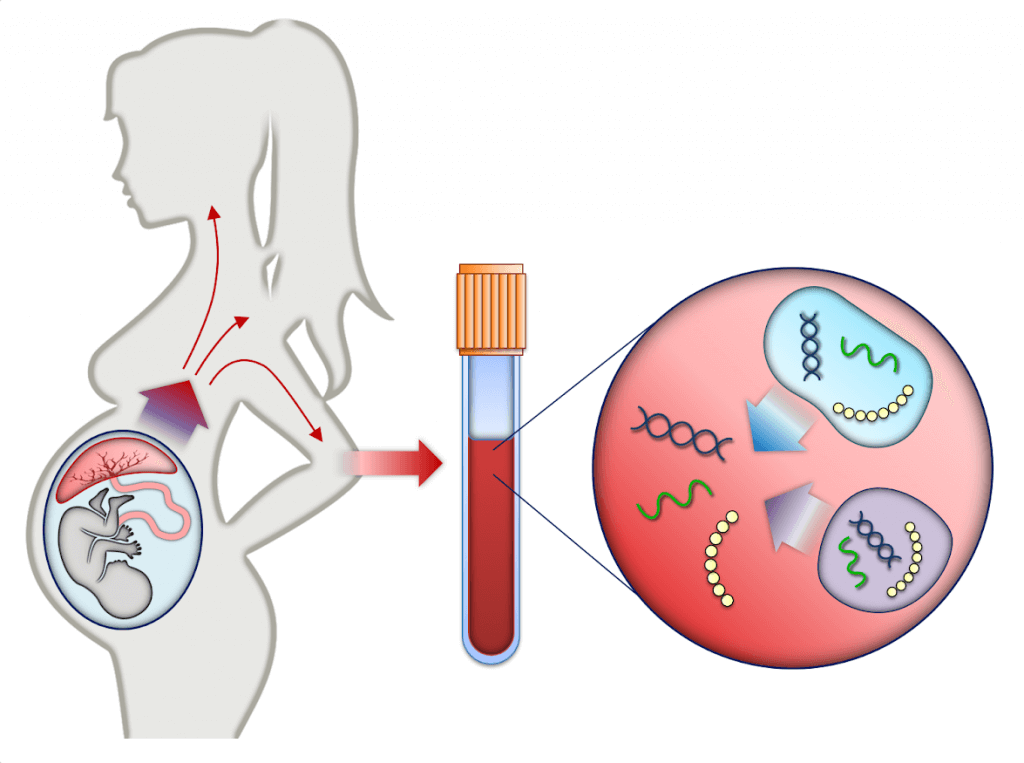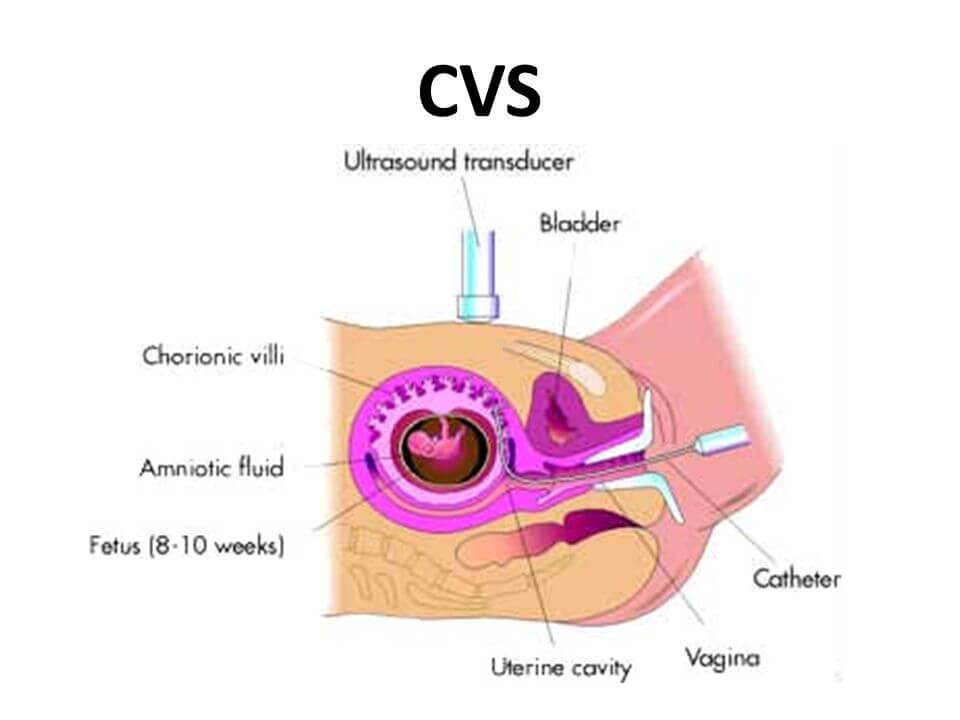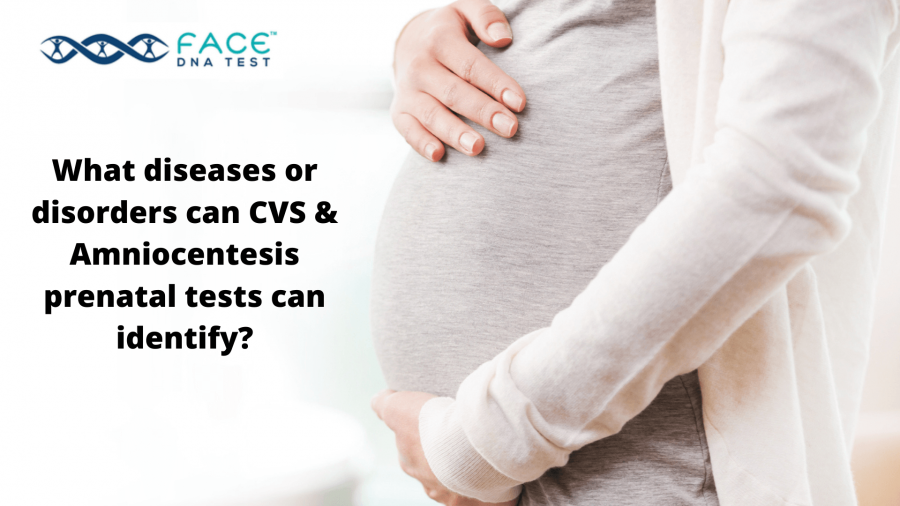Both CVS & Amniocentesis are invasive prenatal tests that can help you in identifying various chromosomal and genetic disorders. These two prenatal tests are preferred when there is an increased risk that your baby may have diseases or disorders. There are some common reasons why your baby has genetic disorders or birth defects:
- If you are 35 years of age or older, then your baby may be affected by any kind of chromosomal abnormality including Down syndrome.
- The previous screening test showed that your baby is at risk.
- You have had a child with Spina Bifida, Down syndrome, or other disorders.
- In case, you and your partner a known carriers of any genetic disorder such as Cystic Fibrosis.
The above are the main reasons for having an Invasive Prenatal Testing.

Amniocentesis can detect certain neural tube defects such as Spina Bifida, and Anencephaly. This test is considered the most accurate way to determine the baby’s gender before birth. It is very rare to use amniocentesis prenatal testing in the third trimester. It can also determine, whether are baby’s lungs mature enough for delivery.
CVS is very useful in identifying chromosomal problems such as Down syndrome, and also other genetic disorders such as Cystic Fibrosis. Tay-Sachs diseases, and Sickle Cell Anemia. It can also identify disorders that are linked to one sex such as Muscular Dystrophy. But, CVS prenatal tests do no detect open neural tube defects such as Spina Bifida.

If you are confused about which prenatal test is important for you then you can ask Prenatal DNA test Atlanta professionals for assistance. It is important to discuss with professionals before choosing any DNA testing.
What does CVS stand for?
Chorionic villus sampling is known as CVS. This prenatal test involves removing a tiny sample of tissue called the chorionic villi from the placenta and examining it for chromosomal anomalies and genetic illnesses. It is usually carried out during weeks ten and thirteen of gestation. The chorionic villi, which resemble tiny fingers of placental tissue, are made of the same genetic material as the developing fetus. Depending on the family history and the availability of lab testing or CVS hours during the surgery, testing for further genetic abnormalities and illnesses could be possible.
How accurate is fetal genetic testing?
When using CVS for fetal genetic testing, severe chromosomal mutations such as Down syndrome and neural tube defects may be detected with over 99% accuracy. It can be more difficult to detect more uncommon hereditary illnesses definitively. Although there is little possibility of false positive and false adverse outcomes, the accuracy is good. For more reliable results, search for a trustworthy and certified CVS facility near me.
Potential hazards associated with CVS procedures:
Despite the procedure’s existence for more than 40 years, there are still a number of possible hazards. Despite being widely accepted as safe and efficacious, the technique is viewed as more intrusive in nature and may provide possible health risks. Among these dangers are:
-
Pain and discomfort:
A medical professional implanting a needle through the cervical cavity or abdomen may result in cramps, stress, and occasionally severe discomfort. Although usually short-lived, this discomfort can be acute. Although cramping and soreness following treatment are typical, they typically fade overnight or within two days.
-
Risk of Infection:
One possible worry with the chorionic villus sampling (CVS) technique is the possibility of infection. Although the risk is reduced using careful sterile procedures, there remains a slight chance of infection since the fetus’ protective layers may break down.
-
Risk Of Miscarriage
There is a chance of miscarriage after CVS; however, the risk is minimal. The invasive nature of obtaining tissue samples from the placenta causes this danger.
Choose Clarity with Our DNA Test.
Get Accurate Answers With our Test!
-
- Accurate
- Quick Result
- Private and Secure
- Affordable

Conclusion
Using Non-Invasive Prenatal Paternity Testing (NIPPT) has significantly improved the quality of prenatal care. Face DNA offers Non-invasive prenatal Paternity Testing (NIPPT) a secure and simple way of testing for confirming paternity by examining cell-free fetal DNA from the mother’s bloodstream. Many pregnant parents find it an appealing alternative due to its precision and minimal danger. To offer the finest service available to the mother and the growing fetus, the decision to go through with NIPPT should ultimately be decided in consultation with medical specialists, considering specific circumstances, medical information, and genetic diagnosis.







Leave a Reply
Your email is safe with us.
You must be logged in to post a comment.